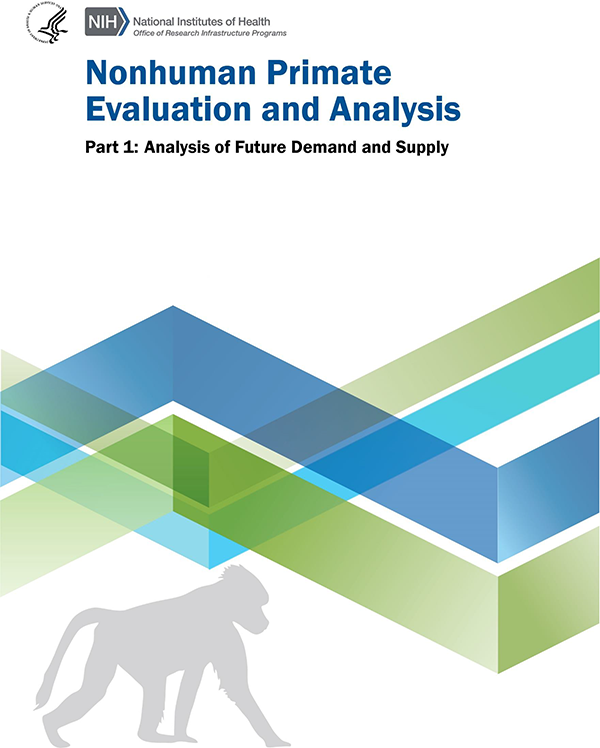Nonhuman Primate Evaluation and Analysis Part 1: Analysis of Future Demand and Supply
Nonhuman primates (NHPs) serve as critical animal models for many research areas, including infectious diseases; social, cognitive and behavioral research; reproductive biology; regenerative medicine; aging and neuroscience research. The National Institutes of Health (NIH) provides support for NHP breeding colonies, facilities, and other research resources to facilitate the effective use of NHPs by NIH grantees as well as intramural scientists. This support is provided through grants and cooperative agreements administered by the Office of Research Infrastructure Programs (ORIP) within the Office of the Director as well as through other grants, cooperative agreements, and contracts administered by individual institutes. ORIP programs currently include the seven National Primate Research Centers (NPRCs); the Caribbean Primate Research Center; and baboon, African green (vervet) monkey, and squirrel monkey colonies located at various academic institutions.
Ensuring an adequate supply of NHPs to sustain research progress has been an ongoing challenge, with periodic shortages and surpluses being experienced at various times over the past several years. The NHP Evaluation and Analysis was conducted to provide the NIH and the research community with an improved understanding of the demand for and supply of NHPs within the United States, with particular emphasis on the NPRCs and other NHP centers supported by the ORIP, which support research across the NIH Institutes, Centers, and Offices. The results will also aid the NIH in determining the best strategy to pursue with regard to NHP research resources in order to facilitate execution of NIH’s research programs. The study was comprised of an initial phase (described in the present report) to collect and evaluate quantitative and qualitative data on supply and demand, followed by a second phase employing an expert panel to assess future needs (described in the companion to this report). Part 1 of the study was designed to use multiple methods to evaluate future demand and supply owing to the uncertainties associated with any single method and was comprised of four distinct components:
- A review of the capabilities of major U.S. NHP service providers
- An analysis of trends in historical NHP use by NIH awardees and others
- An analysis of historical NHP use data and forecasts of future demand for NHPs reported by major NHP service providers, and definition of their operational characteristics
- Conduct of a survey of NIH-sponsored NHP users to characterize consumer demand
Click the image below to view the full report.




